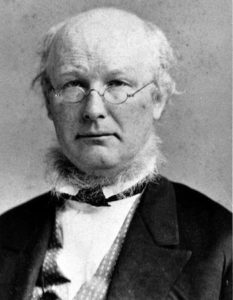People In Journalism: What I learned from the EOTOs
Each student in class was tasked with teaching the class about significant figures in Journalism. In this blog post, I hope to highlight some key facts I learned about some of these people.
Mary Ann Shadd
The first person I learned about was Mary Ann Shadd. Going into this presentation I had no idea who she was, so I enjoyed getting to learn a little bit more about her. She was the eldest of 13 children and was born to free parents in Delaware who had a safe house on the Underground Railroad. She became the first black woman in North America to publish and edit a weekly newspaper. Interestingly, Shadd never listed her name or took credit for her articles’.
William Lloyd Garrison
Another person in Journalism history I learned about was William Lloyd Garrison. He was a journalist who pioneered the anti-slavery campaign. He authored the newspaper, the liberator in which ¾ of his readers were free African Americans, as well as spearheaded acts of American leaders and government such as the compromise of 1850. Garrison was originally pro-colonist but then switched to abolitionism. He was passionate about the fact that the north should succeed from the union and even went on to found the New England anti-slavery society.
Horace Greeley
 Prior to this presentation, I knew somewhat about Horace Greeley, because my rival high school back in my home town was named over him and the students were working hard to get the name changed because they didn’t think Greeley’s actions deemed him important enough to have a school named after him. however, my knowledge of him didn’t go much deeper than that so learning more about him through presentations was a real treat. Greeley was the editor of the New York Tribune and even hired people like Karl Marx and Friedrich Engels to report on the working class for the paper. Greeley helped establish the Republican Party and is even credited with naming the party which at the time it was the Anti-slavery abolitionist party. He pulled 40% in the national popular vote in the 1872 election, however, he didn’t live long enough to see the end of the election (which he lost). He opposed woman’s suffrage, which was the main reason why the students at Horace Greeley High School petitioned tone the buildings name change, but after learning more about him I truly see how untrue the argument that his legacy wasn’t important enough to have a school named after him really was.
Prior to this presentation, I knew somewhat about Horace Greeley, because my rival high school back in my home town was named over him and the students were working hard to get the name changed because they didn’t think Greeley’s actions deemed him important enough to have a school named after him. however, my knowledge of him didn’t go much deeper than that so learning more about him through presentations was a real treat. Greeley was the editor of the New York Tribune and even hired people like Karl Marx and Friedrich Engels to report on the working class for the paper. Greeley helped establish the Republican Party and is even credited with naming the party which at the time it was the Anti-slavery abolitionist party. He pulled 40% in the national popular vote in the 1872 election, however, he didn’t live long enough to see the end of the election (which he lost). He opposed woman’s suffrage, which was the main reason why the students at Horace Greeley High School petitioned tone the buildings name change, but after learning more about him I truly see how untrue the argument that his legacy wasn’t important enough to have a school named after him really was.

Comments
Post a Comment